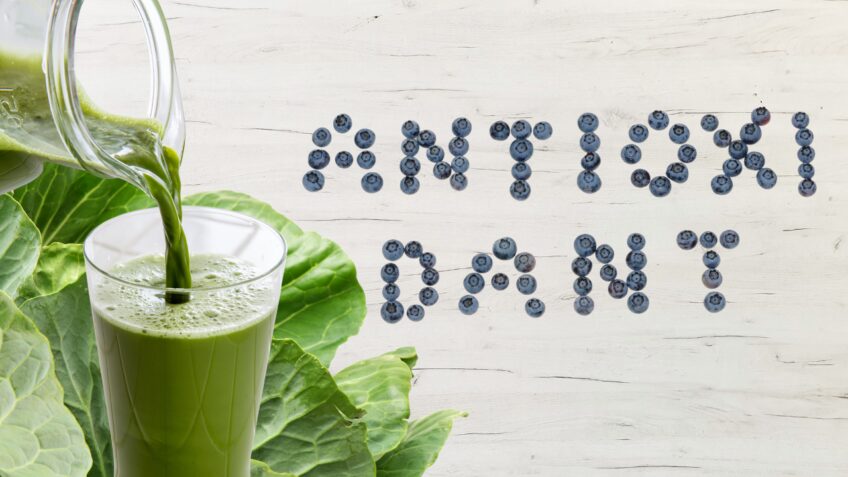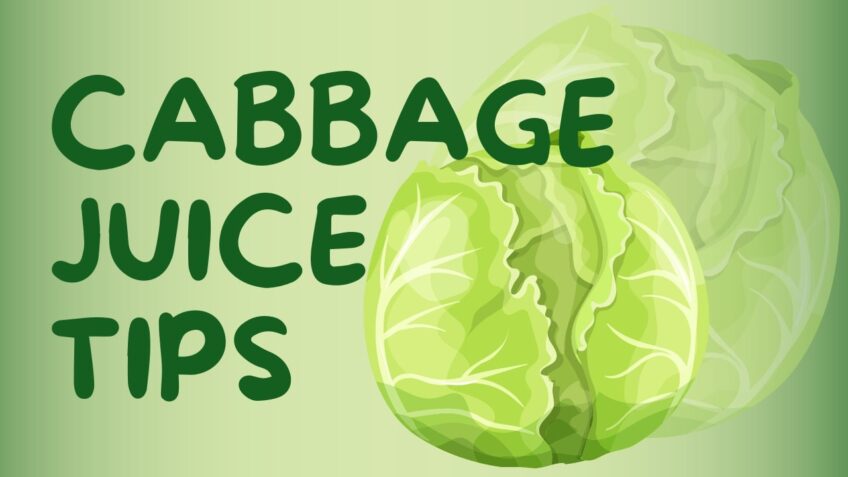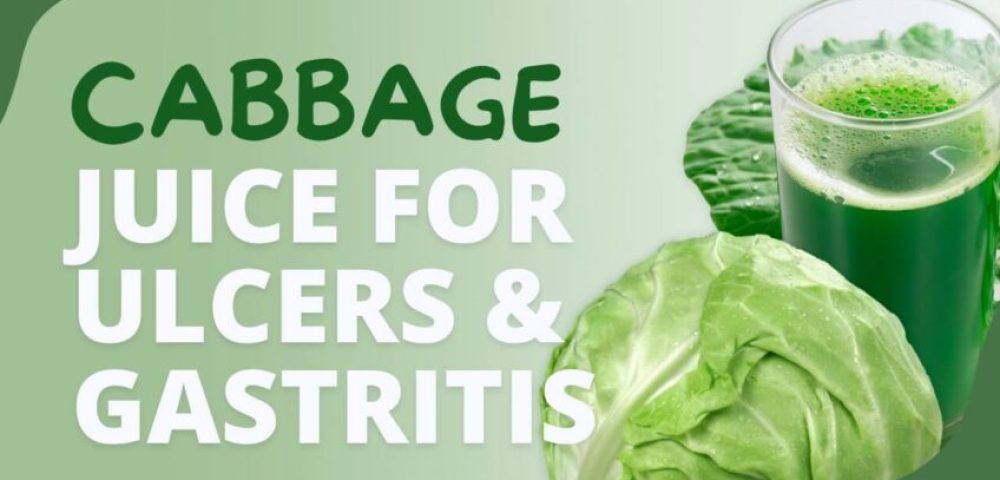The cruciferous vegetable family includes cabbage. Similar to its cruciferous cousins, broccoli and kale, cabbage is packed with nutrients that have been linked to a number of health advantages.
Vitamins abound in cabbage juice, which also include calcium, iron, and potassium. Some of the most interesting health advantages of cabbage are caused by antioxidants like sulforaphane.
While juicing removes the fiber from the vegetable, it offers the nutrients in a concentrated form. You can eat a lot more cabbage when you drink the juice alone rather than the solid version because it is less filling.
Three glasses of juice can be produced from one head of cabbage.
Page Contents
- 1 Information on Nutrition
- 2 Understanding Ulcers and Gastritis: Causes and Symptoms
- 3 How Cabbage Juice Can Help Heal Your Gut
- 4 The Science Behind: Antioxidants and Anti-Inflammatory Properties
- 5 Tips for Incorporating Juice into Your Diet
- 6 FAQs
- 7 Conclusion
Information on Nutrition
The other elements in cabbage juice are present in tiny amounts, but one serving of cabbage juice provides you with half the vitamin C your body needs for the day.
One cup (236mL or 8 fluid ounces)
- Calories: 31
- Fat: 0g
- Sodium: 442mg
- Carbohydrates: 4g
- Fiber: 0g
- Sugars: 4g
- Protein: 4g
- Vitamin C: 36mg
Understanding Ulcers and Gastritis: Causes and Symptoms
Ulcers and gastritis are common digestive disorders that can cause discomfort and pain. It’s important to understand the causes and symptoms of these conditions so that you can seek appropriate treatment and make lifestyle changes to manage them effectively.
Causes
Ulcers are caused by the erosion of the lining of the stomach or small intestine. This can be due to a variety of factors, including the overuse of nonsteroidal anti-inflammatory drugs (NSAIDs) like ibuprofen, as well as infection with the bacterium Helicobacter pylori (H. pylori). Stress and smoking may also contribute to the development of ulcers.
Gastritis, on the other hand, is inflammation of the stomach lining. This can be caused by a variety of factors, including infection with H. pylori, excessive alcohol consumption, stress, and autoimmune disorders. Certain medications, such as aspirin and corticosteroids, can also contribute to gastritis.
Symptoms of Ulcers and Gastritis
Both ulcers and gastritis can cause similar symptoms, including:
- Abdominal pain or discomfort
- Bloating
- Nausea
- Vomiting
- Loss of appetite
- Dark or tar-colored stools (indicating the presence of blood)
In severe cases, ulcers and gastritis can cause complications such as bleeding or perforation of the stomach or intestines, which require urgent medical attention.
Managing Ulcers and Gastritis
If you are experiencing symptoms of ulcers or gastritis, it’s important to seek medical attention. Your healthcare provider may recommend medications such as antibiotics to treat an H. pylori infection, proton pump inhibitors to reduce stomach acid, or antacids to neutralize stomach acid.
In addition to medication, lifestyle changes can also help manage ulcers and gastritis. These include:
- Avoiding foods and beverages that can irritate the stomach, such as spicy foods, alcohol, and caffeine.
- Eating smaller, more frequent meals throughout the day
- Quitting smoking
- Reducing stress through activities like yoga or meditation
In some cases, natural remedies like cabbage juice may also be helpful in managing ulcers and gastritis. Cabbage juice contains antioxidants and anti-inflammatory compounds that can help soothe inflammation in the gut and promote healing. It’s important to talk to your healthcare provider before trying any natural remedies to ensure they are safe and effective for your specific situation.
How Cabbage Juice Can Help Heal Your Gut
Cabbage juice has been shown to have a variety of health benefits, particularly when it comes to promoting digestive health. In fact, it has been used as a natural remedy for ulcers and gastritis for decades, and recent research has provided further evidence of its healing properties.
One of the key ways that juice can help heal your gut is by reducing inflammation. Inflammation is a common underlying factor in many digestive disorders, including ulcers and gastritis, and can cause pain and discomfort. Cabbage juice contains compounds called anthocyanins and glucosinolate, which have been shown to have anti-inflammatory properties. These compounds help to reduce inflammation in the gut and promote healing of the digestive tract.
It also contains a high concentration of antioxidants, which help to protect the body from oxidative stress. Oxidative stress can damage the cells in the digestive tract and lead to inflammation, so consuming antioxidants like those found in cabbage juice can help to prevent this damage and support overall gut health.
In addition, it’s rich in vitamin C, which is essential for the growth and repair of tissues in the body. This vitamin plays an important role in the production of collagen, a protein that is found in the lining of the digestive tract and helps to keep it strong and healthy. By providing the body with a source of vitamin C, cabbage juice can help to support the growth and repair of the digestive tract.
Finally, cabbage juice is a good source of fiber, which is important for maintaining healthy digestion. Fiber helps to promote regular bowel movements and can prevent constipation, which can contribute to the development of digestive disorders like ulcers and gastritis.
To enjoy the benefits of cabbage juice for your gut health, you can juice fresh cabbage or purchase pre-made cabbage juice from a health food store. It’s important to note that cabbage juice should be consumed in moderation, as excessive intake can cause bloating and gas. As with any natural remedy, it’s always a good idea to talk to your healthcare provider before adding cabbage juice to your diet to ensure it’s safe and appropriate for your individual needs.
The Science Behind: Antioxidants and Anti-Inflammatory Properties

Cabbage juice has gained popularity in recent years due to its potential health benefits. The science behind it suggests that it contains compounds with antioxidant and anti-inflammatory properties, which may be responsible for its healing effects.
Antioxidants
are compounds that help protect the body from oxidative stress, a process that occurs when there is an imbalance between free radicals and antioxidants in the body. Free radicals are unstable molecules that can damage cells and contribute to the development of chronic diseases like cancer and heart disease. Antioxidants help neutralize free radicals and prevent this damage.
Cabbage juice is a rich source of antioxidants, including vitamins C and E, and compounds called anthocyanins and glucosinolate. These compounds have been shown to have potent antioxidant activity in laboratory studies, suggesting that they may help protect the body from oxidative stress.
Anti-inflammatory effects
Inflammation is a natural response of the immune system to injury or infection, but chronic inflammation can contribute to the development of a variety of diseases, including digestive disorders like ulcers and gastritis.
In fact, a 2015 study published in the Journal of Ethnopharmacology found that cabbage juice was effective in reducing symptoms of peptic ulcer disease, a common digestive disorder. The study participants drank 250 ml of fresh cabbage juice daily for seven days and experienced a significant reduction in symptoms like abdominal pain and bloating.
It’s important to note that while cabbage juice has potential health benefits, it should not be used as a replacement for medical treatment for digestive disorders. It’s always a good idea to consult with a healthcare provider before making any significant changes to your diet or using natural remedies like cabbage juice to manage health conditions.
Tips for Incorporating Juice into Your Diet

If you’re interested in incorporating cabbage juice into your diet for its potential health benefits, there are a few tips to keep in mind to make it more enjoyable and sustainable. Here are some tips for adding cabbage juice to your diet:
Start with small amounts
It can be quite potent, so it’s best to start with small amounts and gradually increase the amount as your body adjusts. Begin with a quarter cup of juice and work your way up to half a cup or more.
Mix it with other juices
Juice can have a strong taste, so you may want to mix it with other juices to make it more palatable. Try mixing it with carrot or apple juice for a sweeter taste, or with ginger and lemon juice for a zesty kick.
Drink it on an empty stomach
Drinking on an empty stomach may help improve its absorption and effectiveness. Try drinking it first thing in the morning before breakfast, or at least 30 minutes before eating.
Use fresh, organic cabbage
When making, it’s best to use fresh, organic cabbage to avoid any potential contaminants or pesticides. You can juice the cabbage yourself using a juicer or blender, or purchase pre-made cabbage juice from a health food store.
Add it to your favorite smoothie
If you’re not a fan of the taste on its own, try adding it to your favorite smoothie recipe. This can help mask the taste while still providing the potential health benefits of cabbage juice.
Don’t overdo it
While cabbage juice can have potential health benefits, it’s important not to overdo it. Consuming excessive amounts of cabbage juice can lead to digestive discomfort like bloating and gas. Aim to consume no more than 1 cup of cabbage juice per day.
Overall, incorporating cabbage juice into your diet can be a simple and effective way to promote digestive health and potentially reduce symptoms of digestive disorders like ulcers and gastritis. With these tips, you can make cabbage juice a more enjoyable and sustainable part of your daily routine.
Other Natural Remedies for Ulcers and Gastritis

While cabbage juice may be a promising natural remedy for digestive health, there are several other natural remedies that may also help improve and reduce symptoms. Here are some other natural remedies to consider
Licorice root
They have been used in traditional medicine for its anti-inflammatory and soothing properties. It may help reduce inflammation in the digestive tract and promote healing of ulcers. Licorice root can be consumed in tea form or taken as a supplement.
Probiotics
Probiotics are beneficial bacteria that can help restore balance to the gut microbiome and improve digestive health. They may also help reduce inflammation in the digestive tract. Probiotics can be found in fermented foods like yogurt, kefir, and sauerkraut, or taken as a supplement.
Aloe vera
It has anti-inflammatory and soothing properties and may help reduce symptoms of ulcers and gastritis. Aloe vera juice can be consumed on its own or added to smoothies or other beverages.
Ginger
Ginger has been shown to have anti-inflammatory and analgesic properties, and may help reduce inflammation in the digestive tract and relieve pain associated with ulcers and gastritis. Ginger can be consumed in tea form, added to smoothies, or used in cooking.
Slippery elm
Has a soothing effect on the digestive tract and may help reduce inflammation and promote healing of ulcers. It can be consumed in tea form or taken as a supplement.
FAQs
How long does it take cabbage juice to heal gastritis?
According to a study conducted in 2014, cabbage juice can be used to treat gastritis, with most patients experiencing full healing within 10 days of treatment. However, it is important to note that the healing time can vary depending on the severity of the condition, so it is best to consult a doctor for an individual assessment.
Does cabbage get rid of Helicobacter pylori?
Yes, cabbage may help reduce the presence of H. pylori in the body. Studies have found that cabbage and other Brassica vegetables contain substances called glucosinolates, which are believed to have anti-microbial properties that can help.
How much cabbage juice should I drink for ulcer?
It is suggested to drink half a cup (125 milliliters) of cabbage juice each day, two to three times a day . It is best to dilute the juice with water before drinking. For maximum benefit, it is recommended to drink freshly prepared cabbage juice (of half a cabbage) several times a day before meals.
Conclusion
Overall, incorporating cabbage juice and other natural remedies into your diet and lifestyle may be a simple and effective way to promote gut health and reduce symptoms of ulcers and gastritis. By making small changes and taking a holistic approach to digestive health, you may be able to improve your overall wellbeing and quality of life.
Theodore is a prolific author at Fischer Institute, known for his insightful articles on health and nutrition. His expertise spans a wide range of topics, from the benefits of traditional foods to the latest in health trends, always aiming to educate and empower readers towards better wellbeing.
Also Read:
- What is a Tai Chi Massage? "The Art of Healing"
- The Future of Healing: Red Light Therapy Research
- 10 Ways to Change Your Mindset and Attitude 2024:…
- Can You Freeze Stewed Apples - Keep Your Fruit Fresh…
- 4 Signs You're Lacking Collagen and How to Fix It -…
- Nutrition Tips for Building Muscle: Fueling Your…















